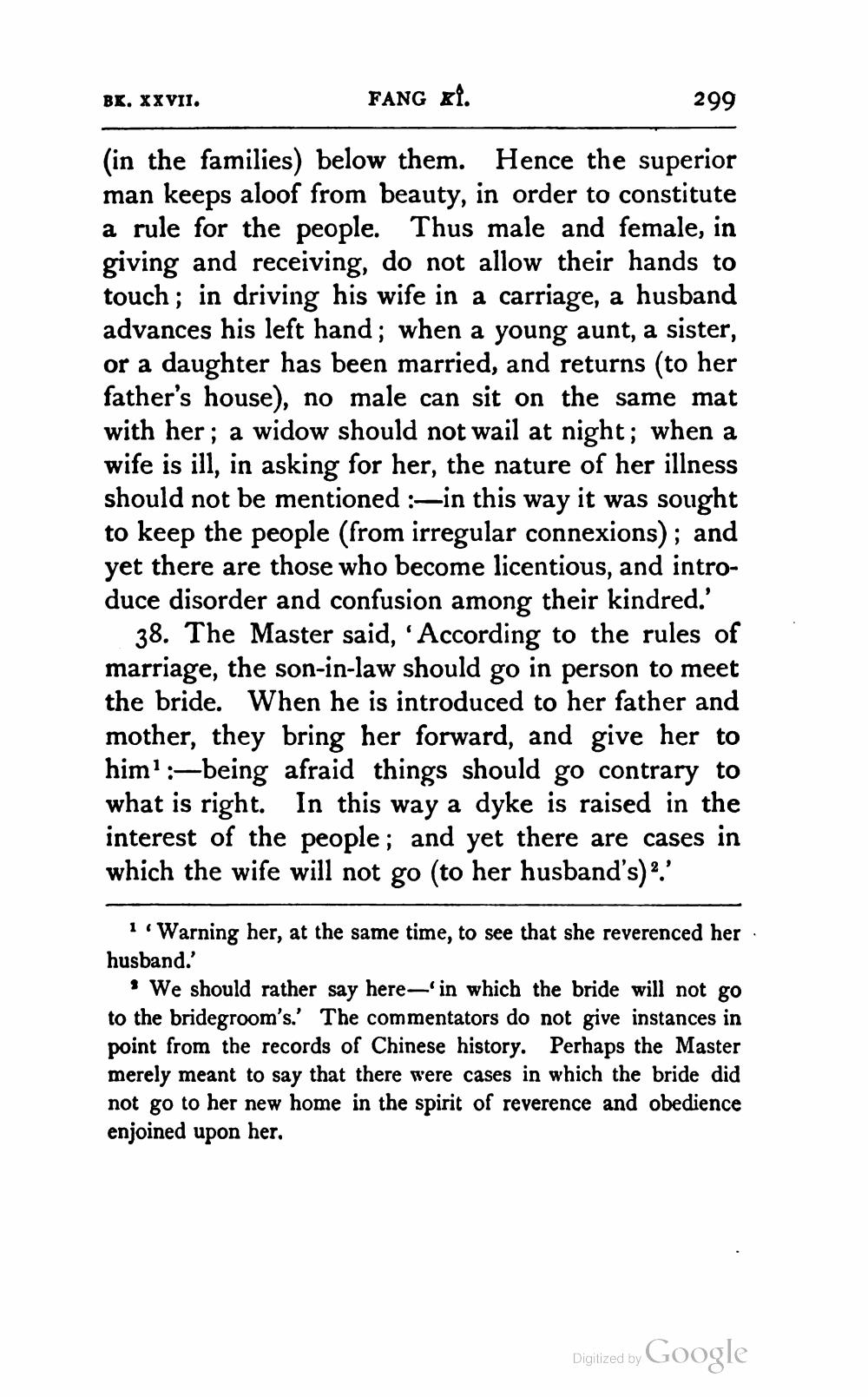________________
BX. XXVII.
FANG X1.
299
(in the families) below them. Hence the superior man keeps aloof from beauty, in order to constitute a rule for the people. Thus male and female, in giving and receiving, do not allow their hands to touch; in driving his wife in a carriage, a husband advances his left hand; when a young aunt, a sister, or a daughter has been married, and returns (to her father's house), no male can sit on the same mat with her; a widow should not wail at night; when a wife is ill, in asking for her, the nature of her illness should not be mentioned :-in this way it was sought to keep the people (from irregular connexions); and yet there are those who become licentious, and introduce disorder and confusion among their kindred.'
38. The Master said, 'According to the rules of marriage, the son-in-law should go in person to meet the bride. When he is introduced to her father and mother, they bring her forward, and give her to him?:-being afraid things should go contrary to what is right. In this way a dyke is raised in the interest of the people; and yet there are cases in which the wife will not go (to her husband's)?'
1 Warning her, at the same time, to see that she reverenced her husband.
* We should rather say here—' in which the bride will not go to the bridegroom's.' The commentators do not give instances in point from the records of Chinese history. Perhaps the Master merely meant to say that there were cases in which the bride did not go to her new home in the spirit of reverence and obedience enjoined upon her.
Digitized by Google




